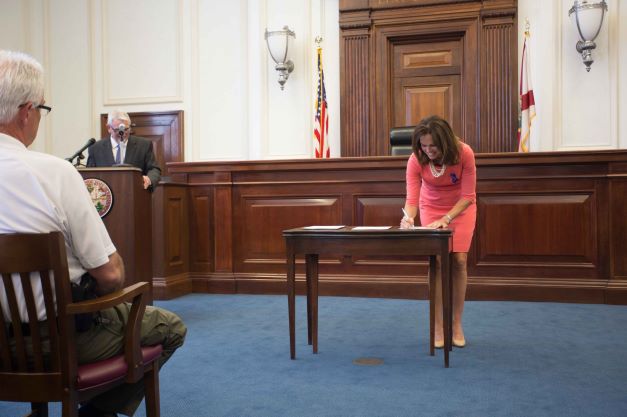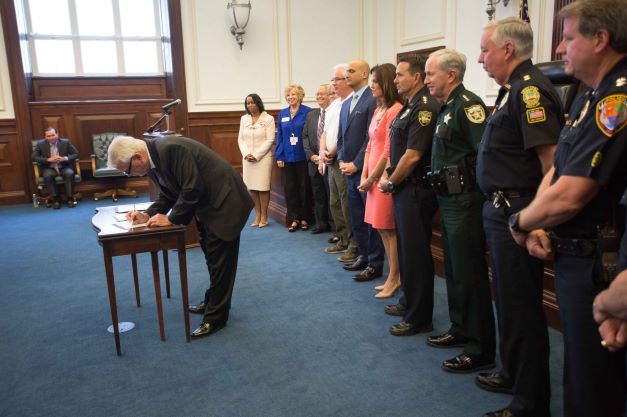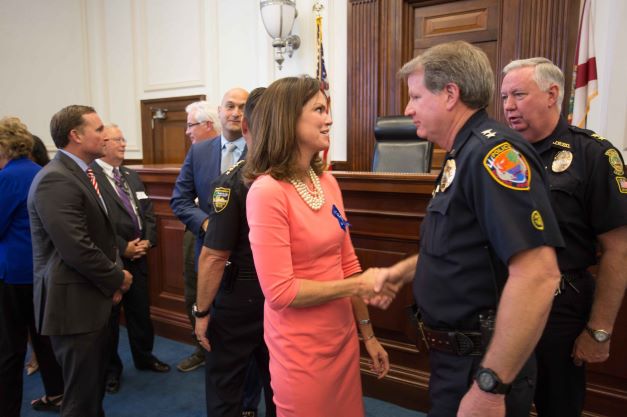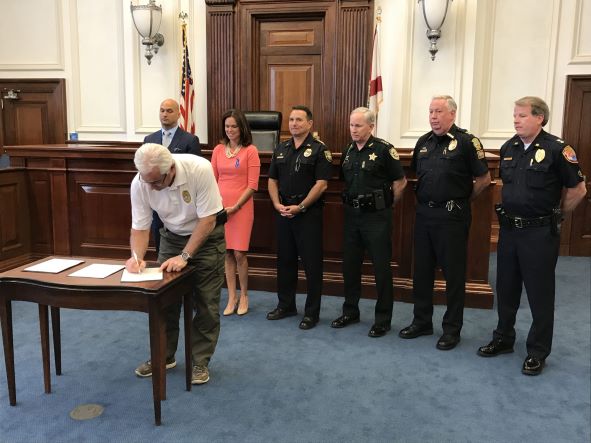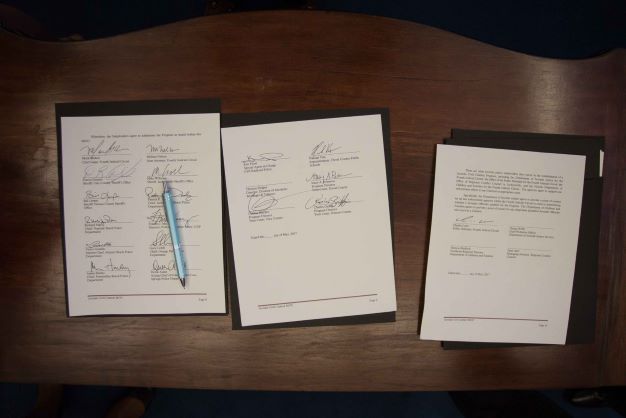Vicks Found Guilty of Sexual Battery, Showing Obscene Material
New Juvenile Civil Citations Agreement Finalized
Published on: May 10, 2017
Fourth Judicial Circuit of Florida
www.sao4th.com

Melissa W Nelson
State Attorney
311 West Monroe Street
Jacksonville, Florida 32202-4242
(904) 255-2500
Law enforcement and juvenile justice stakeholders throughout the Fourth Judicial Circuit on Wednesday finalized efforts to expand the utilization of civil citations by signing a new agreement that will lead to enhanced use of proven alternative sanctions for qualified juvenile offenders.
The Memorandum of Understanding signed by 22 law enforcement officials and juvenile justice stakeholders represents a uniform, streamlined approach for issuing citations in Clay, Duval and Nassau counties. Under the agreement, qualified juveniles who commit misdemeanor or municipal law violations — including misdemeanor battery — would be eligible to receive a civil citation to enter the Teen Court program, rather than be arrested and enter the criminal justice system. Juveniles who successfully complete the program will have no arrest record of their offense.
“This expanded program provides swifter accountability and intervention through smart justice — a benefit to juveniles and taxpayers alike,” said Fourth Circuit State Attorney Melissa Nelson. “This is an achievement that would not have been possible without the leadership and feedback from law enforcement officials throughout Clay, Duval and Nassau counties.”
Pursuant to the agreement, law enforcement officials in the three-county area maintain discretion in determining whether to issue a civil citation in lieu of arrest. If an eligible juvenile is instead arrested for a qualifying offense, the arresting officer must include in the police report why the arrest was warranted.
Under the MOU, offenses that involve the use or possession of a firearm or deadly weapon would disqualify a juvenile from participation. Additionally, certain conditions such as a prior felony or identification as a gang member would disqualify a juvenile from participation.
“I want to thank all of our law enforcement partners who have really worked hard, brought a lot of great ideas to the table, and put together a document we can all really get behind that will help juveniles in our community,” said Jacksonville Sheriff Mike Williams.
One key difference from past agreements is the withdrawal of the Fourth Circuit State Attorney’s Office from the front end of the civil citation process. Under the new agreement, citations issued by law enforcement go directly to Teen Court for processing instead of the State Attorney’s Office for additional review and approval.
Instead, the State Attorney’s Office will only review citations rejected from Teen Court. The office will monitor progress and provide training to law enforcement agencies on the use and benefits of non-arrest diversion methods.
According to the Florida Department of Juvenile Justice, the latest research shows civil citations lead delinquency intervention efforts with a recidivism rate of 4 percent for those who complete the program.
“Civil citations hold youth accountable for their actions while addressing their behavior at the earliest stage of delinquency,” said Theda Roberts, Florida Department of Juvenile Justice statewide civil citation coordinator.
Christina Daly, Florida Department of Juvenile Justice secretary, also is a proponent of expanded civil citations.
“By supporting civil citations, we are working together to ensure better outcomes for our kids and safer communities for all of us,” said Daly.
Duval County Public Schools Superintendent Nikolai Vitti has been a vocal supporter for the expanded use of civil citations and was one of many stakeholders who contributed to creating the new agreement.
“This memorandum of understanding between many key citywide agencies, including Duval County Public Schools, is a great first step in helping young lives have an option that offers hope and an opportunity to change their path in a positive direction.”
The new agreement is effective for two years, with stakeholders agreeing to review the program every six months.


